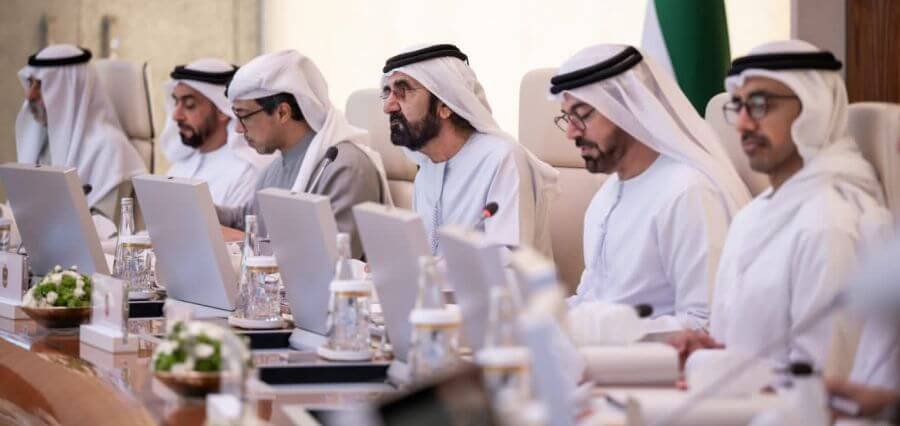Renowned for its rich culture, strategic location, and vast natural resources, the middle east region is now emerging as a hub for innovation, economic diversification, and sustainable development. This transformation is being driven by a new generation of business leaders who are reshaping the region’s economic landscape. These leaders are not only navigating the traditional sectors such as oil and gas but are also pioneering new industries, embracing technology, and fostering entrepreneurship. Their efforts are pivotal in steering the Middle East toward a more diversified and resilient future.
One of the most significant ways current business leaders are driving progress in the Middle East is through economic diversification. The region, particularly the Gulf Cooperation Council (GCC) countries, has long been dependent on oil revenues. However, fluctuating oil prices and the global shift towards renewable energy have prompted a rethinking of economic strategies. Visionary leaders like Saudi Arabia’s Crown Prince Mohammed bin Salman are at the forefront of this change. His ambitious Vision 2030 plan aims to reduce the kingdom’s dependence on oil by investing in non-oil sectors such as tourism, entertainment, and technology. The plan also seeks to privatize state-owned enterprises, thereby opening up new avenues for private investment and fostering a more competitive business environment.
Similarly, the United Arab Emirates (UAE) has emerged as a global business hub, thanks to the leadership of figures like Sheikh Mohammed bin Rashid Al Maktoum, the ruler of Dubai. Under his guidance, Dubai has become a magnet for international businesses, attracting investments in real estate, finance, and technology. The UAE’s strategy of diversifying its economy away from oil has seen significant success, with sectors like tourism, aviation, and real estate becoming major contributors to the economy. Dubai’s Expo 2020, despite being delayed due to the COVID-19 pandemic, showcased the emirate’s ability to host large-scale international events and underscored its role as a global business destination.
Innovation and technology are other key areas where Middle Eastern business leaders are making significant strides. Recognizing the importance of a knowledge-based economy, leaders across the region are investing heavily in technology and innovation. The UAE, for instance, has launched several initiatives aimed at fostering innovation, such as the Dubai Future Foundation and the Mohamed bin Zayed University of Artificial Intelligence. These institutions are designed to attract global talent and position the UAE as a leader in artificial intelligence (AI) and other emerging technologies. Moreover, the region is witnessing a surge in tech startups, with cities like Dubai and Riyadh becoming hubs for innovation and entrepreneurship. Business leaders are increasingly partnering with global tech giants to bring cutting-edge technologies to the region, further driving progress.
Another critical aspect of the progress being driven by current business leaders in the Middle East is the focus on sustainability and environmental responsibility. As global awareness of climate change grows, Middle Eastern leaders are recognizing the need to balance economic growth with environmental protection. Countries like Saudi Arabia and the UAE are investing in renewable energy projects, such as solar and wind power, to reduce their carbon footprint. The UAE’s Masdar City, a planned city project in Abu Dhabi, is one of the world’s most sustainable urban communities and reflects the country’s commitment to environmental sustainability. Additionally, Saudi Arabia’s ambitious NEOM project aims to create a smart, sustainable city powered entirely by renewable energy, further demonstrating the region’s shift towards a greener future.
Business leaders in the Middle East are also playing a crucial role in fostering entrepreneurship and small and medium-sized enterprises (SMEs). Recognizing that SMEs are the backbone of any economy, governments and business leaders are implementing policies and initiatives to support the growth of this sector. In Saudi Arabia, the government has launched several programs under Vision 2030 to encourage entrepreneurship, including the establishment of the General Authority for Small and Medium Enterprises (Monsha’at). Similarly, the UAE has introduced various initiatives to support startups and SMEs, such as the Dubai SME 100, which ranks and recognizes the top-performing SMEs in the emirate. These efforts are creating a more dynamic and diverse business environment, driving economic growth, and providing opportunities for young entrepreneurs.
Furthermore, the region’s business leaders are increasingly focusing on education and skills development as a means to drive progress. In a rapidly changing global economy, the need for a highly skilled workforce is more critical than ever. Leaders in the Middle East are investing in education and training programs to equip the next generation with the skills needed to thrive in a knowledge-based economy. For example, Saudi Arabia’s Vision 2030 includes significant investments in education, with a focus on science, technology, engineering, and mathematics (STEM) fields. The UAE has also made education a top priority, with initiatives aimed at improving the quality of education and fostering innovation in schools and universities. These efforts are essential in building a competitive workforce that can drive the region’s future growth.
Moreover, women’s empowerment is increasingly becoming a focal point for business leaders in the Middle East. Traditionally, the region has been characterized by gender disparities in the workplace. However, current business leaders are championing gender equality and creating more opportunities for women in business. In Saudi Arabia, for example, the government has implemented reforms to increase women’s participation in the workforce, including lifting the ban on women driving and encouraging female entrepreneurship. The UAE has also made significant strides in promoting gender equality, with women now holding key positions in government and business. These efforts are not only advancing gender equality but are also contributing to the overall economic progress of the region.
The ambitious and farsighted business leaders in the Middle East are playing a vital role in driving the region’s progress. Through economic diversification, innovation, sustainability, entrepreneurship, education, and gender equality, these leaders are reshaping the Middle East’s economic landscape and positioning the region for a more prosperous and resilient future. Their vision and leadership are essential in navigating the challenges of the 21st century and ensuring that the Middle East remains a key player in the global economy. As these leaders continue to drive progress, the Middle East is poised to become a hub of innovation, entrepreneurship, and sustainable development, contributing to global growth and stability.





